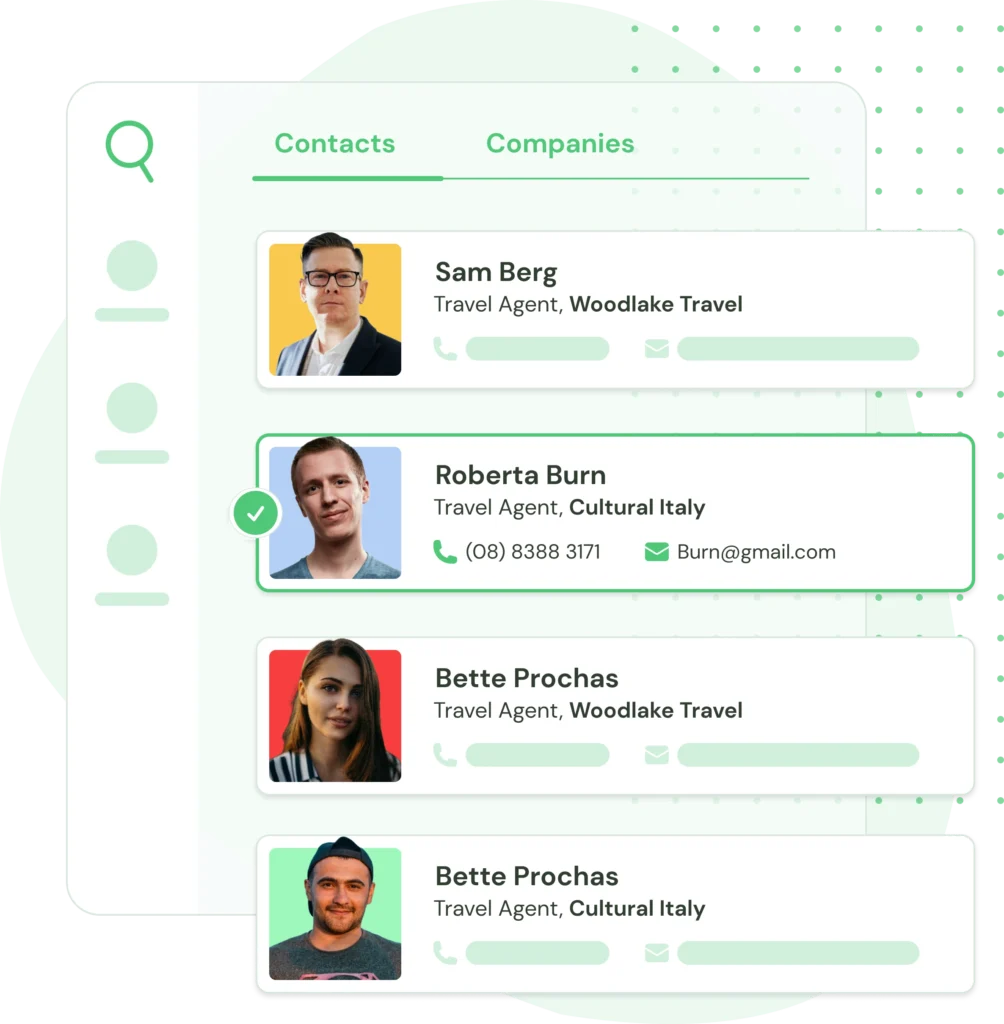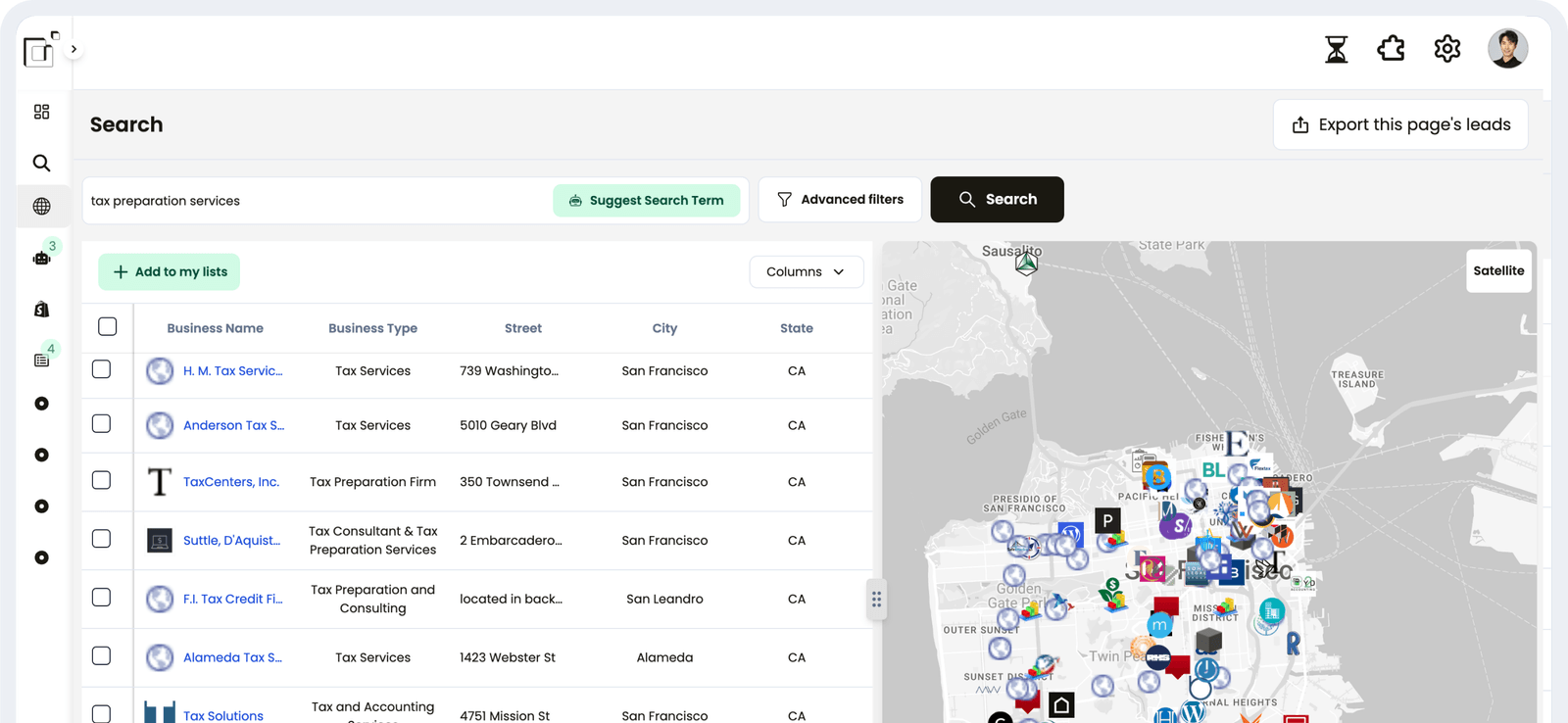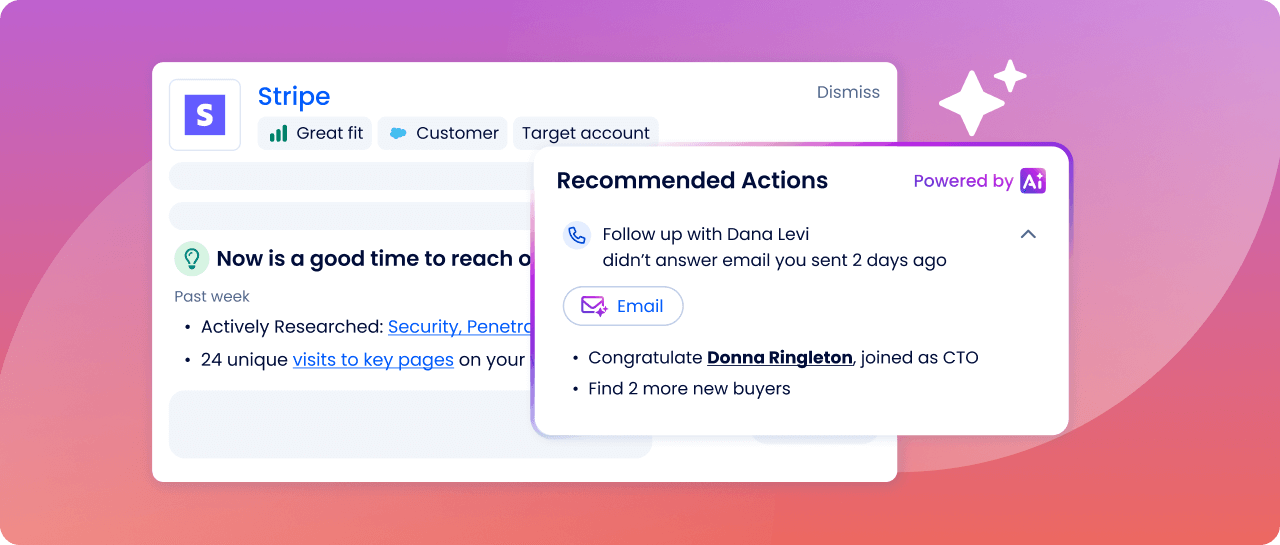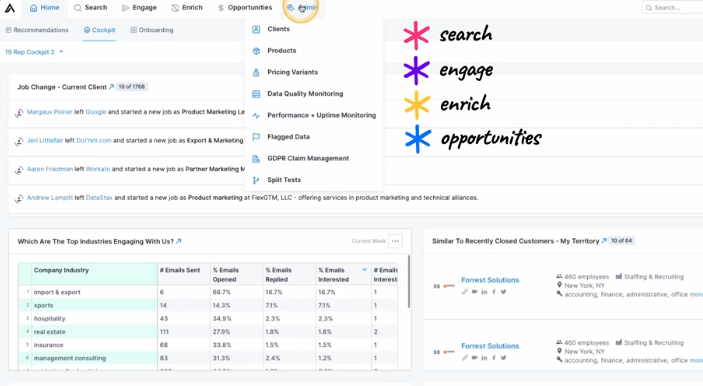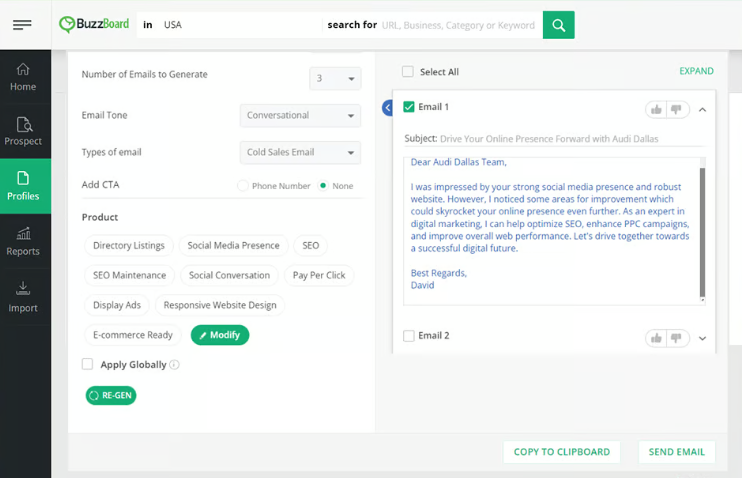Finding new customers shouldn’t feel like a wild goose chase. But for small businesses, that’s often the reality. Without solid B2B data, you’re left guessing who to contact, sending emails into the void, and hoping for the best. The right B2B data provider gives you real, accurate information about potential customers so you can reach the right people, at the right time, with the right message.
TL;DR: Quick Summary
- A B2B data provider helps businesses reach decision-makers with verified contacts, improving targeting and sales efficiency.
- Top B2B Data Providers for SMBs:
- ProspectUp: Best for local leads with deep digital insights.
- ZoomInfo: Best for enterprise sales and intent-based targeting.
- Apollo: Affordable automation and lead generation.
- LimeLeads: Budget-friendly US-based leads.
- Openmart: AI-powered local business leads.
- BuzzBoard: Great for personalized SMB sales insights.
- Pick a provider that aligns with your sales needs and data accuracy requirements.
- ProspectUp helps you find, qualify, and connect with leads that actually convert. Try it today!
What Is a Small Business B2B Data Provider?
A B2B data provider helps small businesses connect with real decision-makers using verified contacts—emails, phone numbers, and job titles. Instead of cold calling blindly, you reach the right prospects, saving time and boosting sales efficiency.
Benefits of an SMB Data Provider
A good SMB data provider doesn't just hand you a list of names. Here’s how an SMB data provider gives you insights to grow:
- Data-Driven Insights: A B2B data provider gives you access to customer behavior, industry trends, and competitor strategies. Instead of guessing which market to tap into or what pricing works best, you can rely on real numbers to guide your strategy.
- Predictive Analytics: Historical data helps you anticipate shifts in demand, seasonal trends, and customer needs.
- Sales Optimization: With access to verified contact details and firmographics, sales teams can focus on decision-makers who actually have the authority to buy, increasing conversion rates.
- Personalized Engagement: Customers expect tailored experiences. A good data provider helps SMBs collect insights on demographics, past purchases, and preferences. If a prospect downloads an eBook on marketing automation, follow up with a case study, not a generic pitch.
- Customer Segmentation: Rather than blasting the same message to everyone, you can break your audience into groups—by industry, company size, or even pain points—so your outreach is more relevant.
- Enhanced Retention Strategies: Understanding customer behavior helps you proactively address pain points before churn happens. If your data shows a drop in engagement from a long-time client, you can step in with a loyalty offer or personalized support.
- Inventory & Demand Planning: SMBs selling physical products can use sales trends to stock up on in-demand items and reduce overstock of slow-moving products.
How to Choose the Best Small Business B2B Data Provider
Here’s what to look at to choose wisely:
Local Presence Signals
If your business depends on local clients, choose a provider with location-based data. You need more than a company’s existence—you need their service areas and locations. A cleaning company in New York, for example, doesn’t need leads from California.
Website & Local SEO Audits
A company’s online presence speaks volumes. A well-optimized website, strong local rankings, and regular traffic indicate an active, engaged business. Some data providers analyze SEO, website activity, and digital footprint to help you target growing companies. If a site hasn’t been updated in five years, they’re likely not seeking new solutions.
Advanced Filters
Not all leads are good leads. You need a provider that lets you filter prospects based on job titles, industries, company size, revenue, and even the technology they use. If you're selling CRM software, you don’t want businesses still relying on spreadsheets. Advanced filters help you zero in on the right prospects so you're not wasting time on unqualified leads.
AI Capabilities
Manual prospecting is tiring. A good provider uses AI to find and qualify leads by analyzing growth trends, hiring, and engagement signals. Some even personalize outreach, crafting tailored emails for better response rates and less time chasing cold leads.
Agency-Focused Solutions
If you run a marketing or sales agency, you need more than just individual leads—you need scalable data solutions. Some providers offer bulk data access, API integrations, and CRM syncing so you can manage thousands of leads efficiently.
List Creation
A good provider lets you build targeted lead lists based on industry, size, funding, or news mentions. This ensures tailored outreach for email campaigns or retargeting ads—because generic lists won’t cut it.
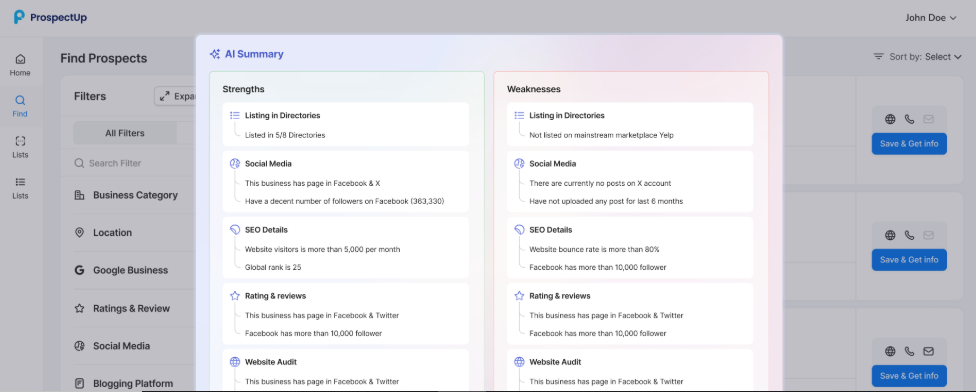


.svg)
